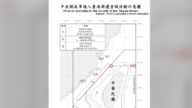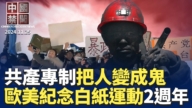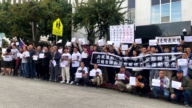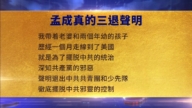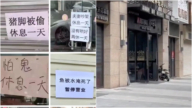【新唐人2013年07月22日讯】这些年来,中国经济的表面繁荣一直是中共用来证明执政合法性的依据。不过随着“钱荒”的出现,中共统治下的经济危机,及随之带来的中共执政危机,越来越受到外界的关注。日前,日本媒体发表社论指出,中共应该向“不透明的机制”动刀。那么,什么是“不透明的机制”?能不能回避中国的经济危机?怎样才能解决中国面临的风险?我们一起来看看。
日前,日本《朝日新闻》发表社论指出,2008年,美国“雷曼危机”发生后不久,中共当局就出台了大规模经济刺激政策,这项政策因规模巨大、应对快速而受到多方称赞,但内情却很糟糕。
当时,接到中央指示的各地方政府,几乎同时开始大规模投资基础设施建设和房地产。大部分资金需要依靠地方政府自主筹措,但银行的正常融资渠道却有诸多限制。
因此,一些信托公司通过推出高利息金融产品从个人手中筹集资金,国有企业的闲余资金也纷纷流入金融市场。这种被称为“影子银行”的融资方式,显示“不透明的融资”在不断膨胀。
文章指出,中国投资、消费需求、出口这“三驾马车”都出现了动力不足。国际社会关注中国的原因在于,中国的金融体系中或许埋藏着定时炸弹,因此建议向“不透明的机制”动刀。
美国南卡罗莱纳大学艾肯商学院教授谢田:“中国这个不透明度机制恰恰是既得利益集团这个专制的机制,中共利益集团已经绑架了中国经济,从13亿中国人民的头上,用通货膨胀,房地产泡沫,股市泡沫等方式劫取了大量金钱,而这些幕后的交易,非法的交易因为中国法治的欠缺,非法交易的人士也得不到应有的惩罚。”
国务院参事夏斌撰文指出,中国已存在事实上的经济危机,目前地方平台偿债缺口、房地产泡沫、过剩产能,三个系统性风险是相互联系、互为传导的。只要某一环节出现较大的事端,风险会瞬间传导,资产价格即刻大幅缩水,将对全中国城市居民和中产阶层形成巨大的威胁。夏斌认为,如果民众的财富严重打折,将会对整个社会、政治的稳定带来难以想像的冲击。
台湾大学经济系教授张清溪:“最严重的问题是它的制度问题,这个问题不太会显示出来,表面上看是金融问题,根本是经济制度问题,政府介入太多、太深,让市场经济不能发挥它的功能,受政府指导的东西就会造成很多后遗症。”
面对中国出现的金融危机等一系列问题,中共高层已经坐立不安。外媒报导,中共总理李克强在一个闭门国务院会议上发了脾气,当被告知他的上海自由贸易区计划遭到既得利益集团持续反对时,他气愤得捶了桌子。
到底要怎样才能解决中国的经济问题?
张清溪:“因为它促进内需就是需要使所得分配更平均,但这个东西它做不到,因为它的政治力量介入太深了,很难走回头路,或者说根本的改变,因为真要改变的话,它可能就解体。不民主化的话,它这些问题解决不了”
随着“钱荒”的出现,虚假GDP再也掩盖不住千疮百孔的中共经济,看好中国经济的声音销声匿迹。30年前,跛足的经济改革带来的恶果,再一次成为学者专家反思的重点。
中国经济体制改革研究会特聘研究员毛寿龙:“(改革)这个问题是多方面的,不只是简单的金融危机,或者是劳动力就业问题,长远角度来讲,可以改变一些理念方面的问题,我们这30年来,是不是发展是最重要的价值﹖是不是其他不发展的价值,或者说和发展比较远的一些价值,是不是不重要﹖”
近年来,美国经济学者谢田一直坚持中国经济将会硬着陆,他的这个观点,现在得到越来越多经济学专家的认同。
采访编辑/刘惠 后制/萧宇
Japanese Media Offers Advice to Solve the Economic Crisis in China
In recent years, the superficial prosperity of China’s economy
has been used by the Chinese Communist Party (CCP) as proof of its ruling legitimacy.
The appearance of the money hungry mentality,
the economic crisis, along with the party’s ruling crisis, is drawing more and more public attention.
Recently, Japanese media published a commentary article
which suggested the CCP should take action on the “non-transparent system.”
Then, what is the “non-transparent system?”
Is China’s economic crisis avoidable?
What needs to be done to solve the crisis in China?
Recently, Japan’s Asahi Shimbun Newspaper published
a commentary article, saying that
the CCP has made a series of economy stimulating policies
after the “Lehman crisis” in 2008.
The policies were complemented for their large scale
and of fast implementation.
As a matter of fact, those policies haven’t gone well.
At the time being, based on the government’s instruction,
many places began investing in basic facilities and properties across the country.
However, local governments had to be responsible
for the funding.
Meanwhile, there are so many financing restrictions
from banks.
Therefore, some securities companies took the chance
to issue high interest financing products.
Thus, even more money from state-owned enterprises
has also flowed into the financial market in China.
This financing method is called a “shadow banking system,”
which means opaque financing.
The article pointed out that investment, consumption
and exportation, all three economy drivers, currently lack momentum in China.
International communities worry that there might
be a time bomb embedded in China’s financial system
and suggest China take action on this “non-transparent
system.”
Xie Tian, Professor of Aiken Business School, University
of South Carolina: “Because of the non-transparent system,
the CCP’s various interest groups have already kidnapped
China’s economy.
By means of inflation, real estate bubbles and stock market
bubbles have robbed China’s 1.3 billion people of their money.
Because of flaws in the law, those who trade illegally
and behind the scenes cannot be penalized.”
Xia Bin, Counselor of the State Council, wrote an article
stating that the economic crisis has already come to play in China.
Local government debt, real estate bubbles
and excess capital are intertwined.
As long as something happens to one segment of the chain,
risk will spread instantly to other areas.
Capital will shrink sharply and immediately, which will greatly
threaten the lives of middle class and urban residents.
Xia Bin stated that if people’s wealth is severely discounted,
the impact on the whole society and political stability will be huge.
Zhang Qingxi, Professor OF Economy from Taiwan University,
“It seems like a financial problem on the surface.
Nonetheless, the root cause is the problems in the regime.
The government has intervened with the market too much
and too profoundly, which has caused the loss of market function.
A lot of government central-controlled interference
has caused various after-effects.”
The CCP’s senior authorities are on edge when facing
the series of economic crises.
As reported by overseas media, Li Keqiang lost his temple
in one of the state counseling meetings.
He punched the table when his free market trade problems
in Shanghai was objected to by interest groups over and over.
What on earth should be done to solve
China’s economic problems?
Zhang Qingxi: “If the CCP wants to stimulate domestic
demand, it has to distribute national wealth more evenly among people.
However, since political power has intervened too much,
it would be very hard for it to make a root change because the party would disintegrate.
Without being democratized, those issues
can never be solved.”
With the appearance of the money hungry mentality,
the CCP’s fake GDP numbers are now failing to cover the disastrous state of the economy.
Mao Shoulong, distinguished research fellow
of China’s Economy System Reform Society: “It’s not only
about financial crisis, or unemployment rate.
It involves many aspects, from a long-term perspective,
some ideologies need to be changed.
In the past 30 years, was economic development
the most important value?
Are those other values that are not as relevant to
economic development not important at all?”
In recent years, Professor Xia Tian has firmly stated
that
China’s economy will have a hard-landing (fall into
recession rapidly), which now more and more economists are in agreeance of.




